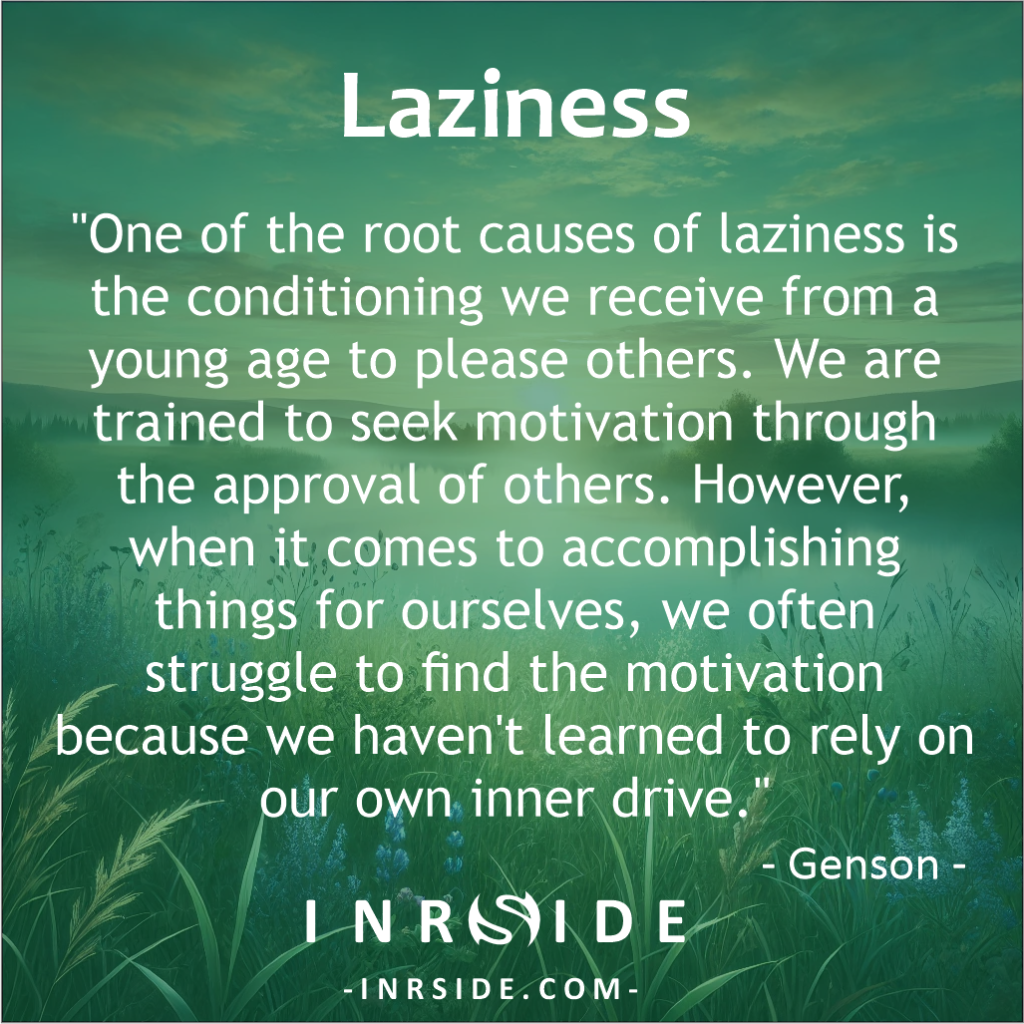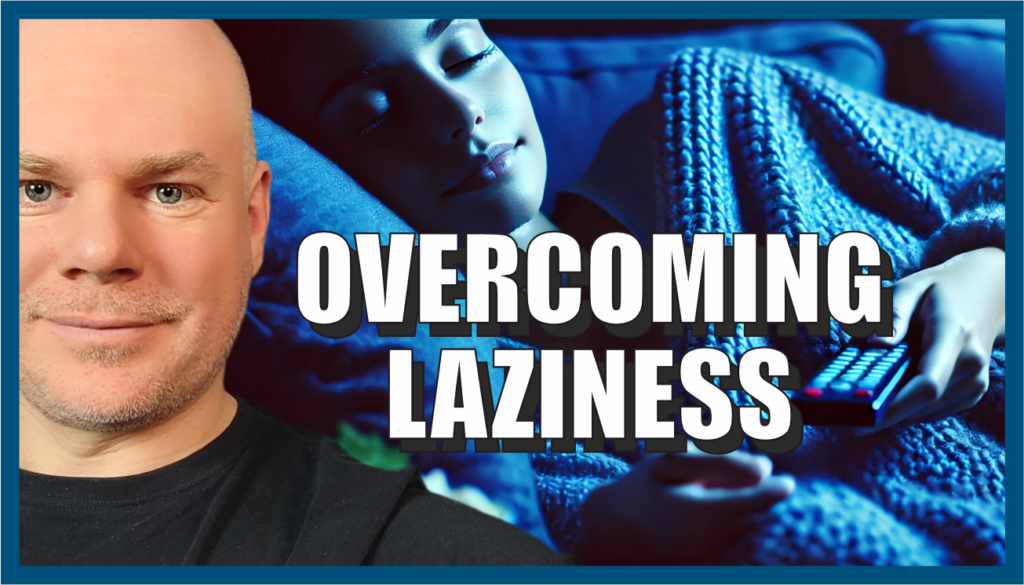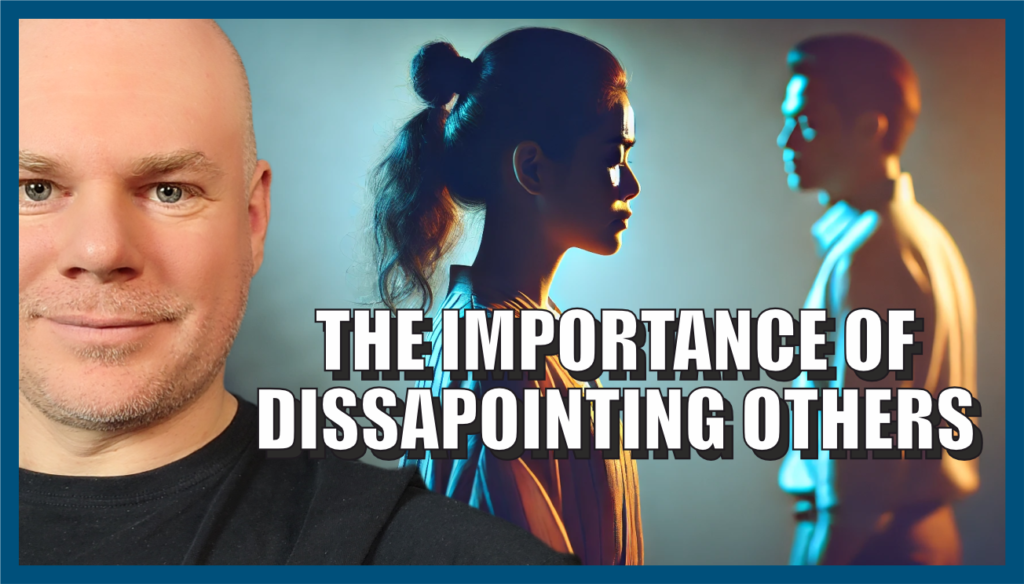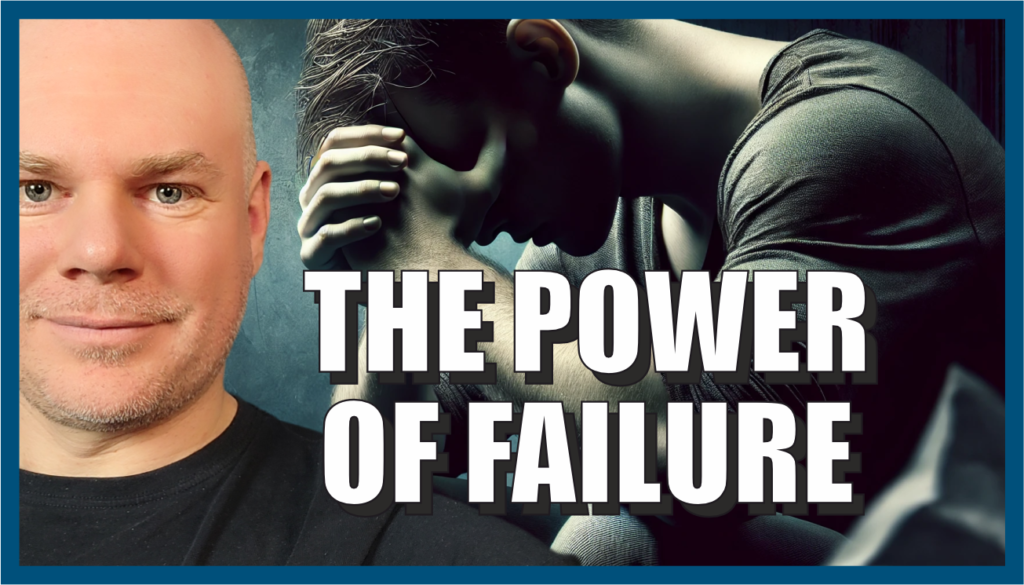Laziness is something many of us struggle with at various points in our lives. Whether it’s avoiding work, procrastinating on personal goals, or simply feeling unmotivated, laziness can be a significant barrier to achieving what we truly want. But what if laziness isn’t just about a lack of willpower? In this blog post, I want to explore one of the deeper, often overlooked causes of laziness and how it relates to the conditioning we received as children.
The Common Struggle with Laziness
Many people experience moments where they want to achieve their goals and have ambitions but simply can’t seem to get started. You may have dreams and plans, but for some reason, it feels impossible to get off the couch and put in the necessary work. While there are numerous factors that contribute to laziness, one of the major reasons stems from our upbringing.
Childhood Conditioning: Seeking Validation from Others
From a very young age, we are conditioned to seek approval from others. As children, we learn that we need to meet the expectations of our parents, teachers, and other adults to receive rewards. For example, something as simple as using the potty earns praise and approval, while failing to do so results in disapproval. This creates a system where our motivation is tied to how others respond to us. and We begin to associate effort with pleasing others rather than pursuing what truly fulfills us.
This type of conditioning runs deep. Many of us learned that being a “good boy” or “good girl” meant doing things to make others happy. Whether it was earning good grades to receive a reward from our parents or following the rules to avoid punishment, we became accustomed to relying on external validation for our sense of accomplishment.
While this system works well for a while—especially in school environments where we’re often working to meet the expectations of teachers and parents—it becomes problematic when we grow up and need to accomplish things for ourselves.
The Struggle to Find Self-Motivation
As adults, when it’s time to pursue personal goals, we often find it challenging to tap into self-motivation. Why? Because we’ve been trained to seek external approval rather than internal satisfaction. If you’ve ever tried to start a personal project or build something from the ground up, you may have found yourself struggling to stay motivated because there is no immediate external reward.
Athletes, for example, may work hard to win races not just for personal satisfaction, but also to prove their abilities to others. Even in individual sports, much of the drive comes from showing others what they can achieve. This reflects how deeply embedded the need for external validation can be.
When you need to work solely for yourself, without the promise of praise or approval, it can feel like you’re stuck in quicksand. Self-motivation becomes elusive because we’ve been conditioned to believe that our efforts only matter when others acknowledge them.
Personal Experience: The Difficulty of Creating for Yourself
In my personal experience, I’ve found it difficult to stay motivated when creating content or pursuing personal projects. I became a counselor and coach because I love making people happy, cheering them up, and offering advice. But when I’m sitting in front of the camera with no immediate audience, it’s harder to find the motivation to keep going.
This highlights a common issue: many of us are people pleasers at heart. There’s nothing inherently wrong with that. Helping others can make society a better place. But when we face personal ambitions that require us to rely solely on ourselves, the struggle becomes real.
For many of us, it’s a challenge to shift from working for others’ approval to working for ourselves. This often results in procrastination, a lack of motivation, and what we often perceive as laziness.
Why Self-Motivated People Tend to Succeed
Interestingly, individuals who are more self-driven and less reliant on external validation often experience greater success. Whether in business, politics, or creative industries, those who are motivated by their own internal goals tend to rise to the top.
It’s not because they are smarter or more talented. But because they’ve learned to prioritize their own satisfaction over external approval. These individuals are often labeled as “selfish” or “individualistic.” But this mindset can lead to greater achievements because it removes the need to constantly seek validation from others.
Finding Motivation Through Enjoyment
One solution to overcoming laziness and finding self-motivation is to focus on enjoyment. When we are passionate about what we’re doing, motivation often comes naturally. Think about how easy it is to play a game and try to level up. You don’t need anyone’s approval to enjoy the process. The same can be applied to work or personal projects. When you genuinely love what you’re doing, you enter a state of flow, and laziness becomes less of an issue.
For example, when I studied sociology and psychology in university, I was genuinely interested in the subjects. I didn’t need external motivation to study because I found the content fascinating. This contrasts with my earlier school years, where I studied to please my parents and earn rewards like comic books. When we are deeply engaged in our work, laziness naturally fades away because the process itself is rewarding.
How to Break Free from Laziness
If you find yourself struggling with laziness, here are a few tips to help you break free:
- Reconnect with Your Passions: Identify what truly excites you. When you enjoy what you’re doing, it becomes easier to stay motivated.
- Set Personal Goals: Focus on goals that are meaningful to you, not just what others expect of you. This can help shift your mindset from seeking external validation to internal fulfillment.
- Celebrate Small Wins: Acknowledge your progress, even if no one else is watching. This helps build self-confidence and reinforces the habit of working for yourself.
- Create a Routine: Structure your day to include time for both personal and professional growth. Having a routine can help you stay on track and avoid procrastination.

Conclusion: Overcoming Laziness Starts with Changing Your Mindset
Laziness isn’t always about a lack of drive or discipline. It’s often the result of years of conditioning to seek approval from others. By recognizing this pattern and shifting our focus to internal motivation, we can break free from laziness and start working toward our own goals with passion and purpose.
When we learn to find enjoyment in the process and stop relying on external validation, we unlock a new level of motivation that allows us to achieve our dreams.



